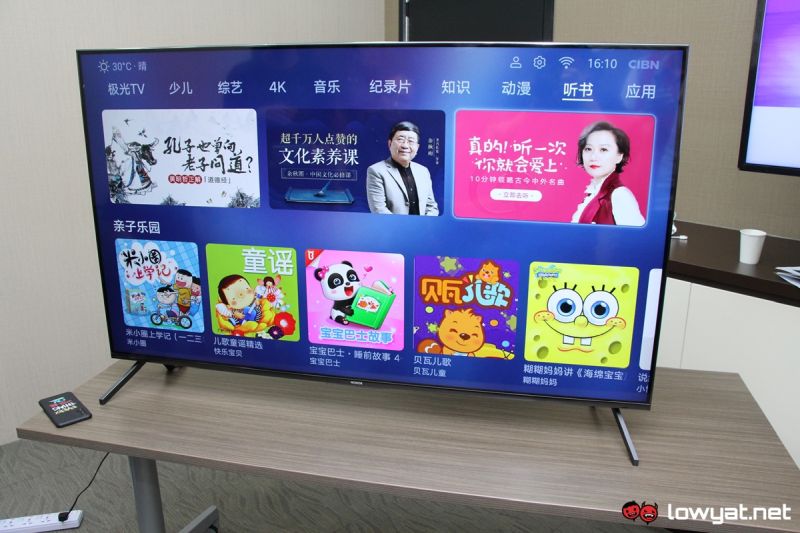It’s been two months since HONOR officially announced its HONOR VISION Smart TV, and officially joined the list of smartphone makers to branch out of the mobile business (after Xiaomi and OnePlus). In total, the brand released two models of the TV: the HONOR VISION and the HONOR VISION Pro.
Both models are a growing indication that HONOR isn’t content with just being a smartphone brand for the younger generation. It also wishes to penetrate the home entertainment and IoT system. Earlier today, HONOR gave us a chance to see its Smart TV at its office and experience it first-hand.
At first glance, the HONOR Vision Pro reminds me a lot of another thin bezel Smart TV, and that’s not exactly a bad thing. Aesthetically, the TV looks brilliantly simple; besides the brand’s name at the bottom of the display, the front is clean and free of any other blemish.
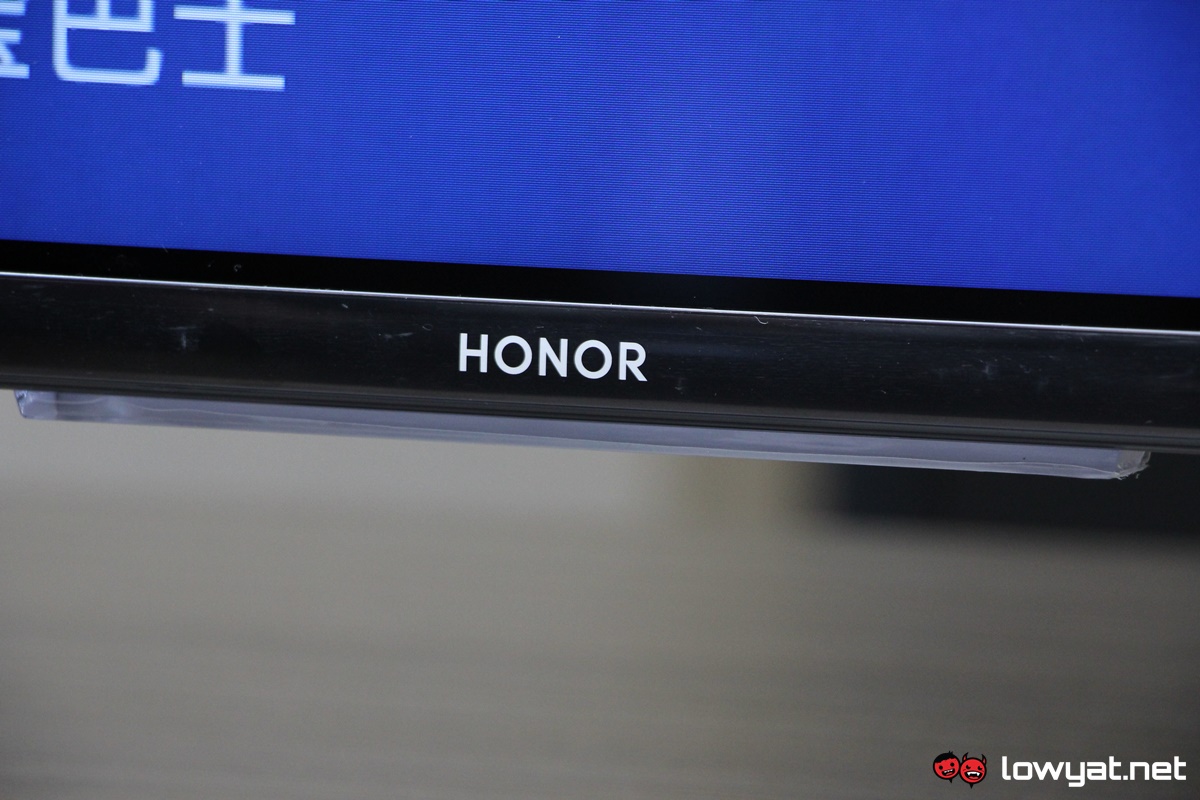
Round the back, the HONOR VISION Pro’s rear sports a plastic cover with polygons cut into it. More to the point, the TV’s overall thickness is slim. So, you’re probably wondering: what’s the difference between the HONOR VISION Pro and the non-Pro variant?
To be precise, there are just two difference between the models. First, the HONOR VISION Pro is the only model to ship out with the built-in, pop-up camera at the top of the TV. Lastly, the Pro variant of the TV comes with six 10-watt speakers built-in, while the non-Pro variant only has four 10-watt speakers.
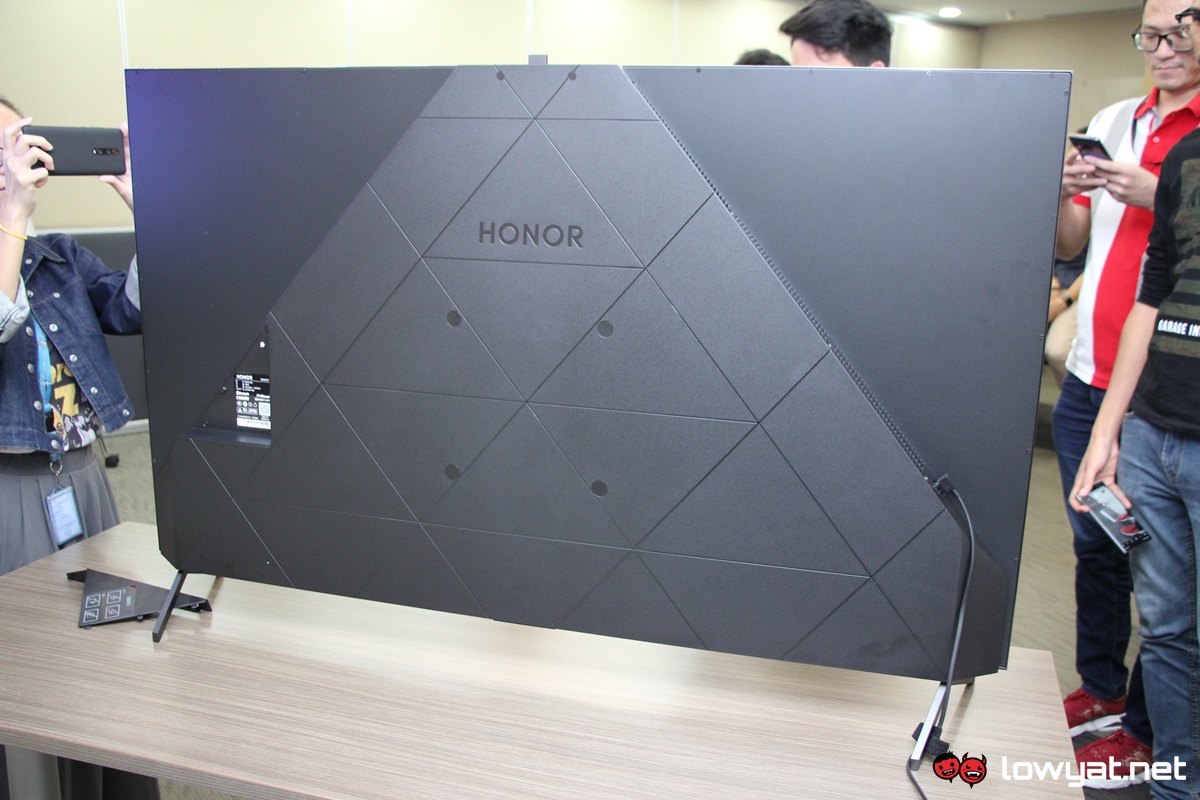
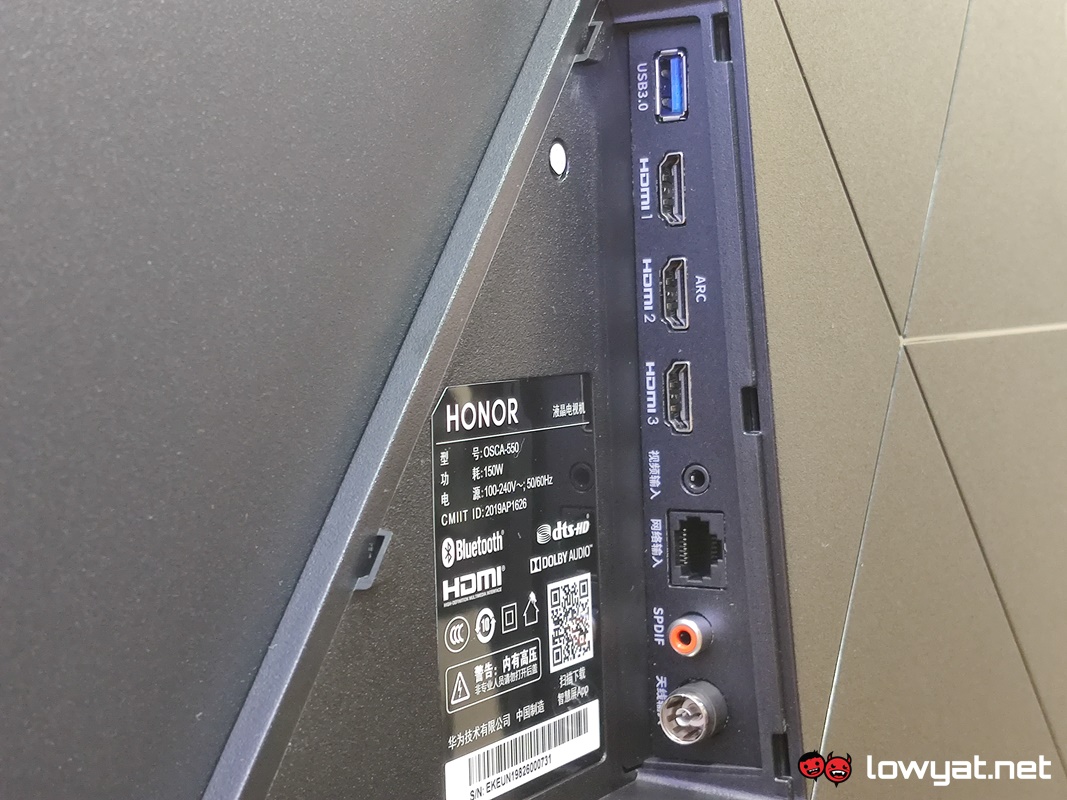
Beyond those physical differences, the HONOR VISION Pro sports a 55-inch 4K display that comes with a 178° viewing angle. The ports are located around the back; these include a USB 3.0 port, three HDMI ports, what appears to be 3.5mm input port, a LAN port, one SPDIF port, and surprisingly, an optical port. On a side note, the TV is also supports Wi-Fi and Bluetooth connectivity, as well as Dolby Audio and DTS HD.
At the heart of the HONOR VISION Pro lies the Honghu 818 chipset, along with 2GB RAM and an internal storage capacity of 32GB. Running on top of that is the HarmonyOS; the operating system built specifically for the HONOR VISION Pro.
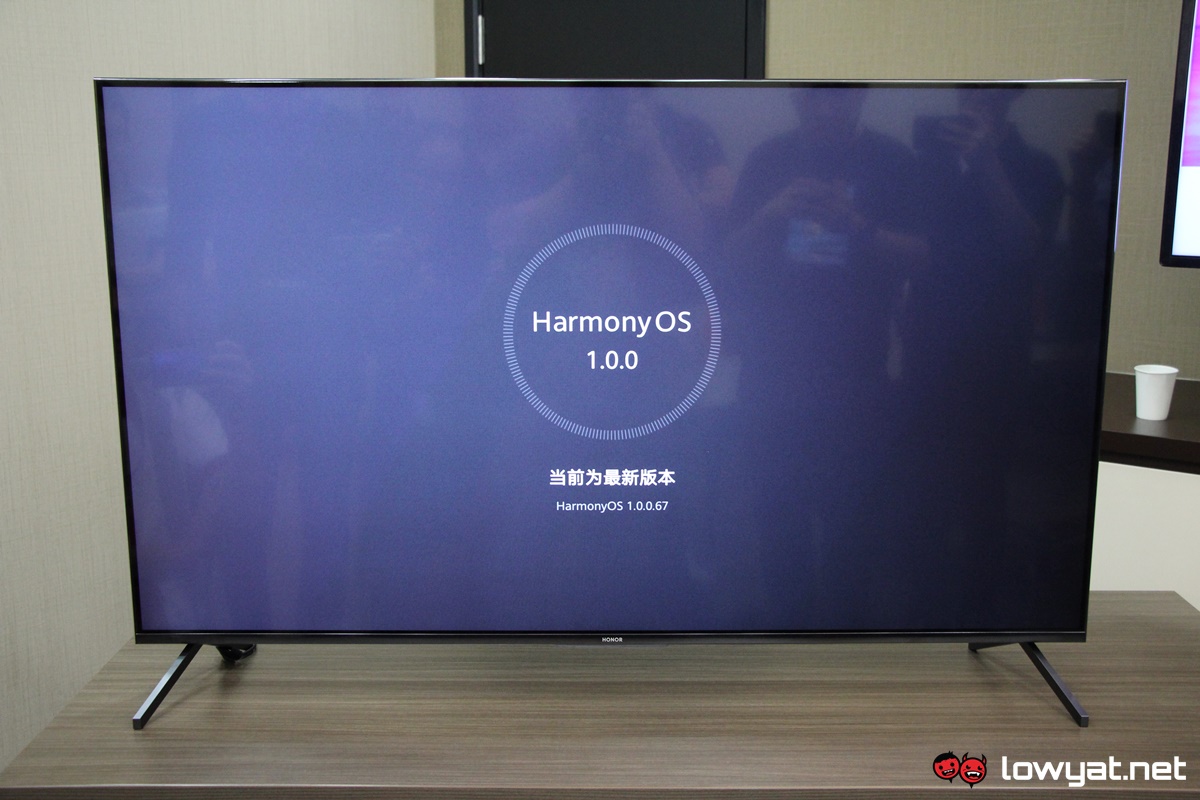
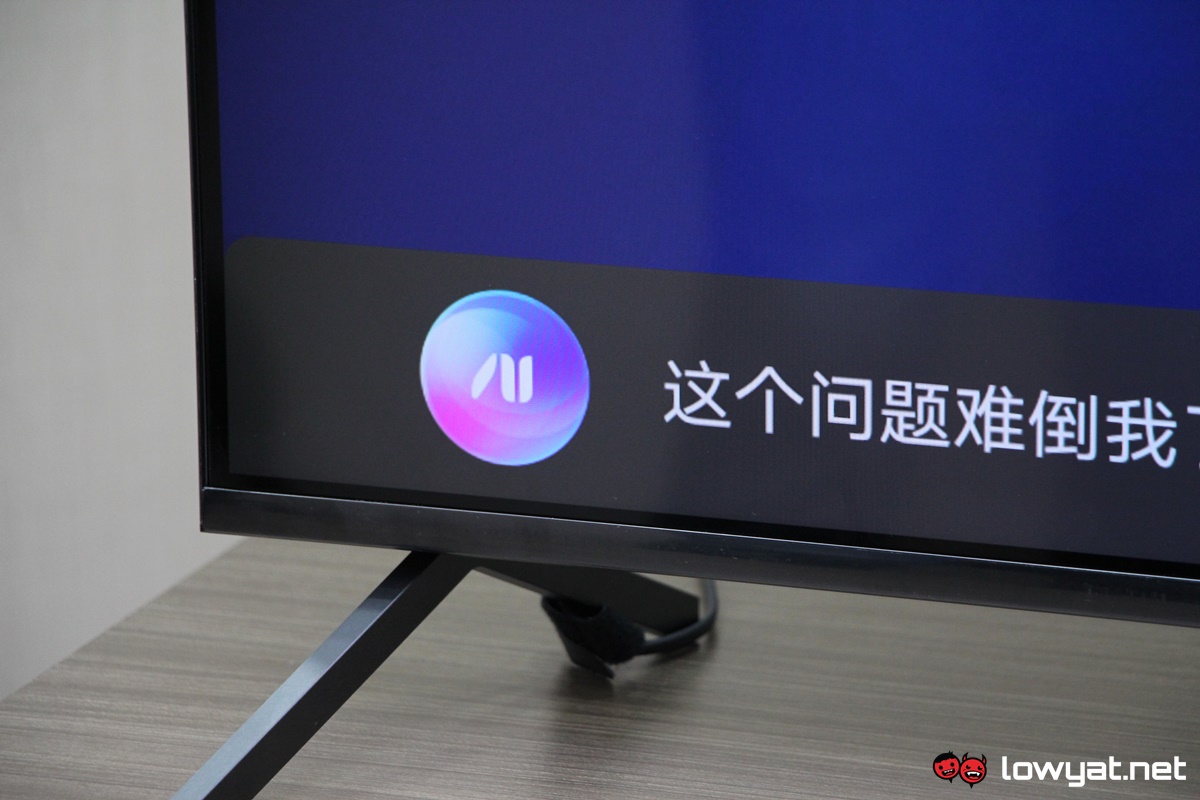 Now, to be fair, the HONOR VISION Pro I played around with came directly from China, which means that everything is in Chinese. As you can imagine, navigating through it was a pretty big hurdle for me. Like all smart TVs, the HONOR VISION Pro has its own AI assistant; its name is YoYo, and like everything else on the TV, YoYo can only converse in Chinese.
Now, to be fair, the HONOR VISION Pro I played around with came directly from China, which means that everything is in Chinese. As you can imagine, navigating through it was a pretty big hurdle for me. Like all smart TVs, the HONOR VISION Pro has its own AI assistant; its name is YoYo, and like everything else on the TV, YoYo can only converse in Chinese.
Of course, like all Smart TV, you can also navigate through the HONOR VISION Pro with a smartphone. In this case, however, the feature is only accessible to both HONOR and Huawei devices. You can also mirror the content of your phone directly on to the TV, but again, you’re only able to do it via HONOR and Huawei-based mobile devices and a specific app.

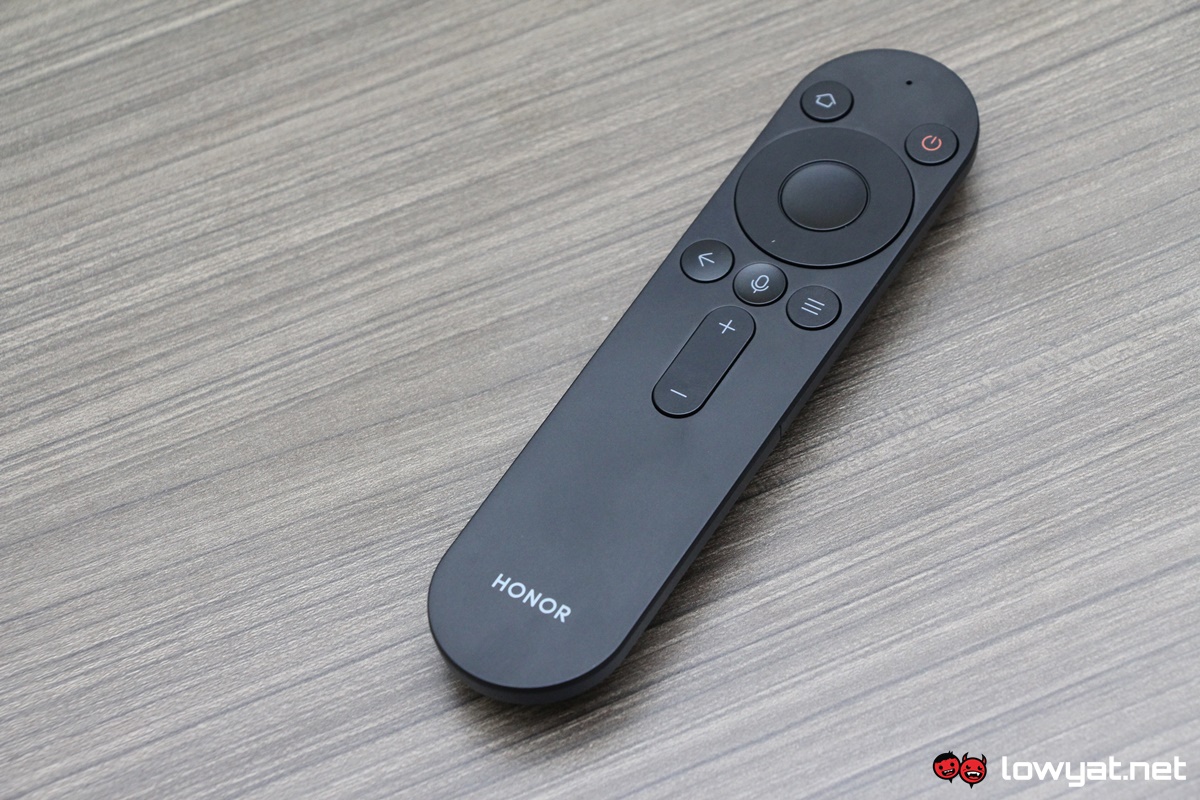
The language barrier aside, once we got going, the HONOR VISION Pro was relatively fast and responsive. Asking YoYo to perform rudimentary tasks – we got it increasing the volume and brightness of the TV – takes a few short seconds, but what is impressive is its ability to conduct more complex tasks. Such as searching for a specific episode of a particular TV series.
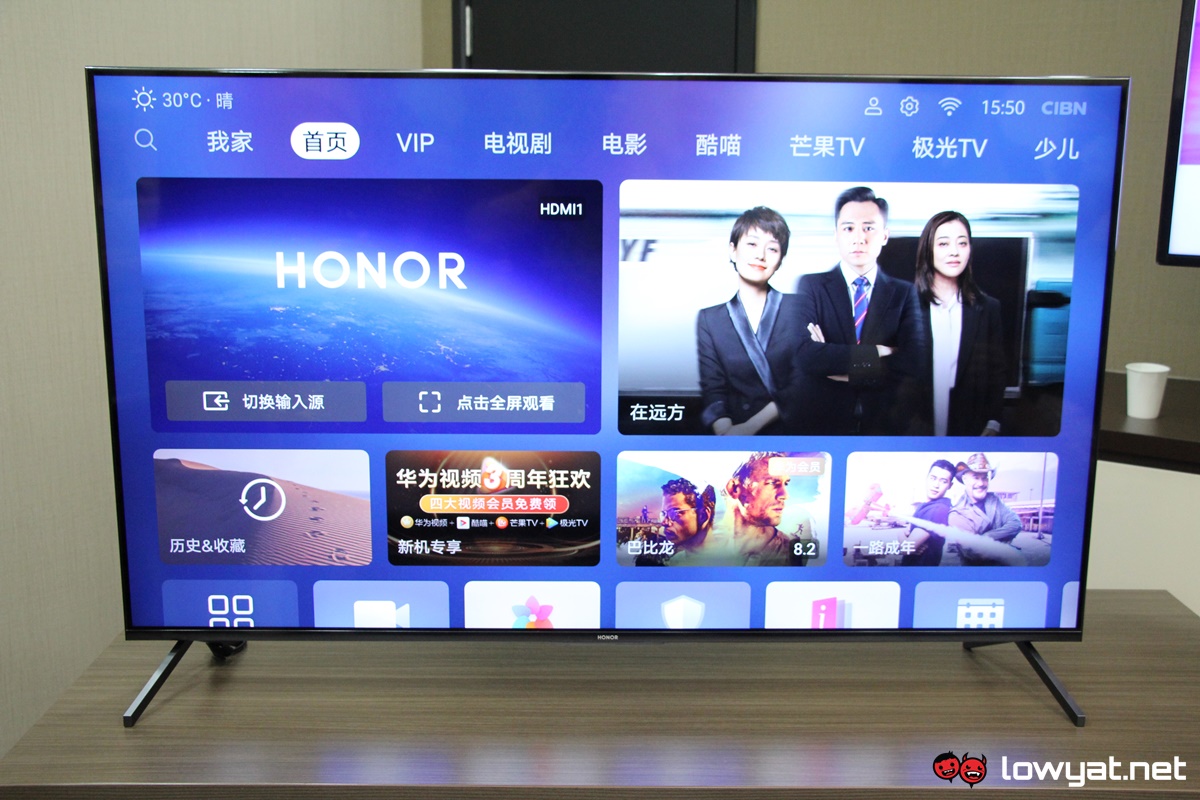
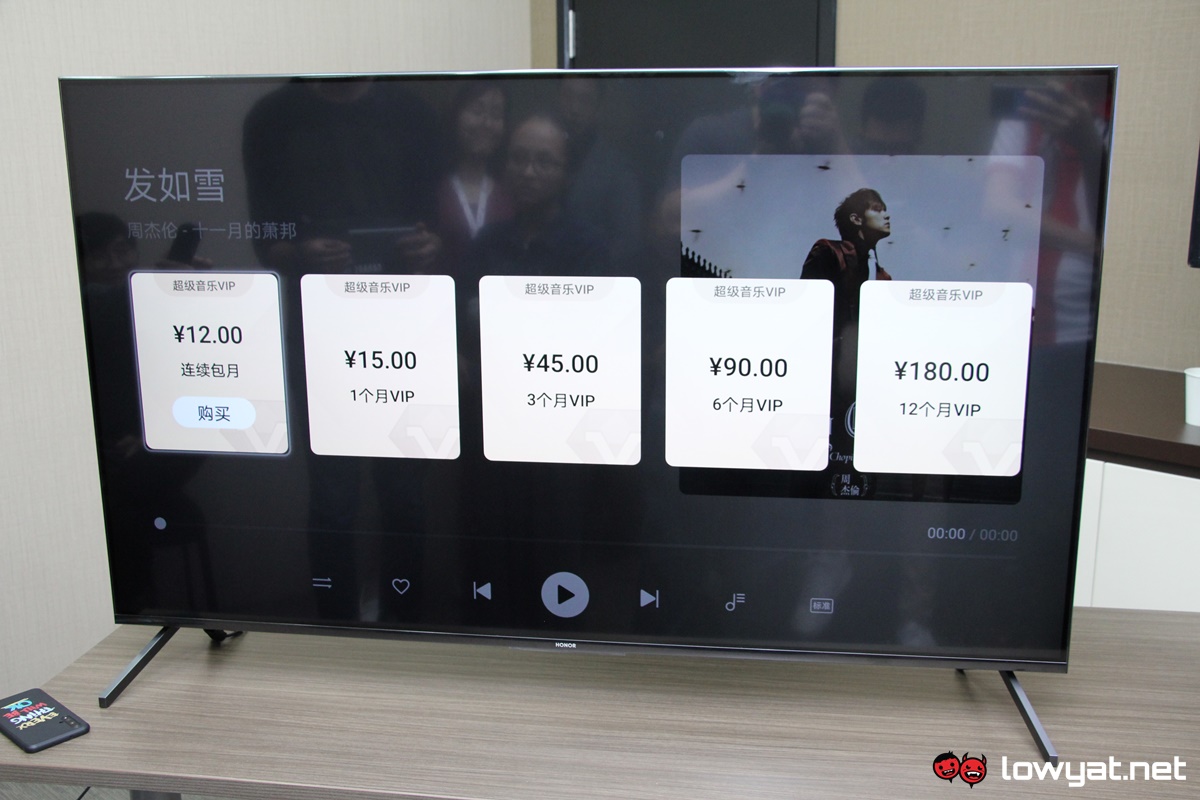
Even more impressive is how the HONOR VISION Pro has access to an entire library of movies and TV shows. Unfortunately, these shows aren’t for free; like most streaming services, you’ll need a premium subscription of sorts to a Huawei account in order to watch entire shows. Otherwise, the most you’ll get is a six minute taster of the movie on offer.
Moving forward, the pop-up camera of the HONOR VISION Pro isn’t there for decoration. Provided you have a decent enough connection to the internet, you can use the TV to engage in a conference call with another person. And before you ask, yes; you can use the camera to take pictures.
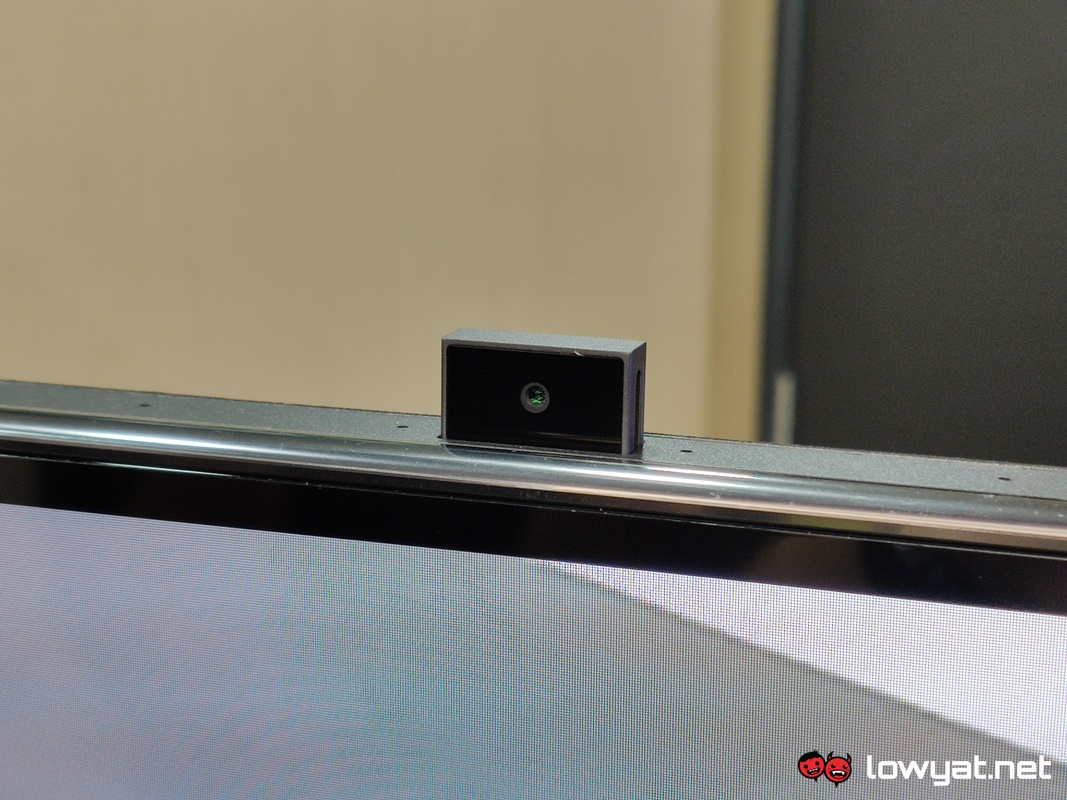
As it stands, the HONOR VISION Pro is only available in China. I did ask HONOR when the TV will see circulation outside of China, to which it said that it was unsure. I also asked if HONOR would consider providing access to non-Google related apps and services (e.g. Spotify, Netflix, Facebook, etc.) to the HarmonyOS, to which it said it was looking into it, but still was unable to provide an answer.
Follow us on Instagram, Facebook, Twitter or Telegram for more updates and breaking news.


